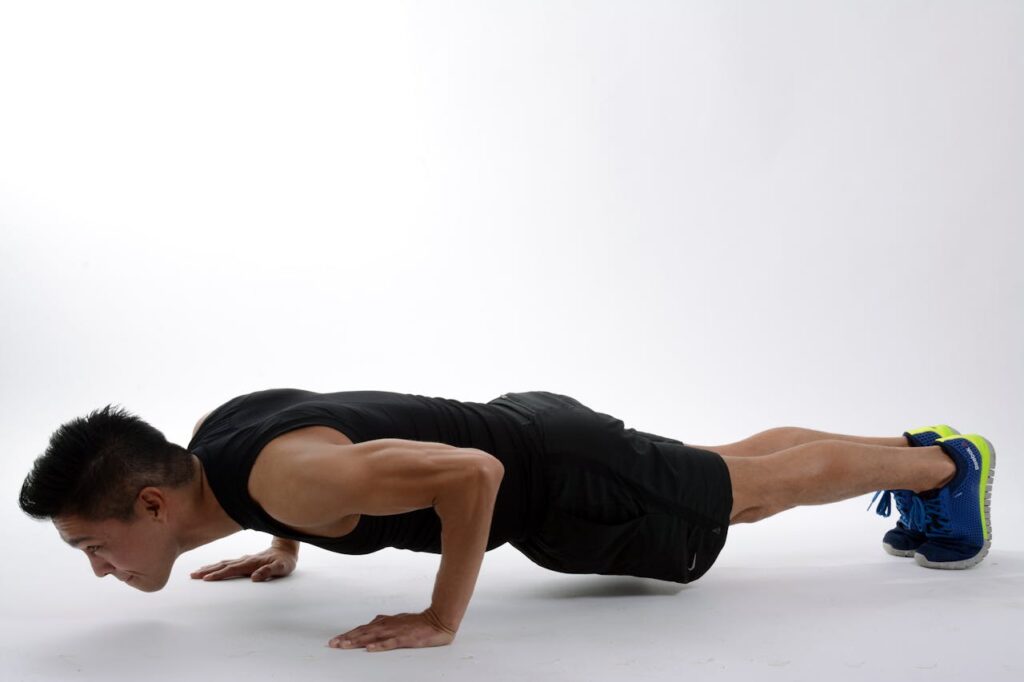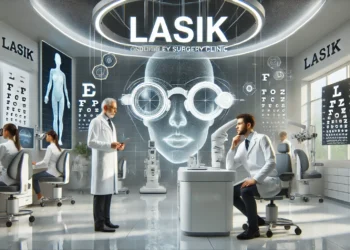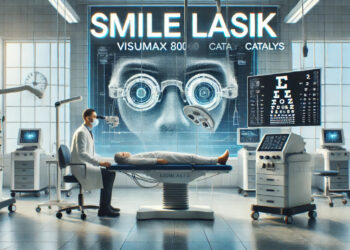In the modern world, health and wellness have become paramount in people’s lives. With busy schedules, an overwhelming influx of information, and increased access to various health products and services, it can be difficult to know where to start or what works best. This guide will break down some of the most popular and effective aspects of health and wellness, offering insights into fitness and weight loss, natural supplements, healthcare services like cosmetic surgery and dental care, mental health management, and skin care solutions, including anti-aging treatments.

Fitness & Weight Loss
The Importance of Fitness and Weight Loss
When most people think of health and wellness, fitness and weight loss often come to mind first. Achieving a healthy weight is not just about aesthetics—it’s about improving overall health and preventing diseases such as heart disease, diabetes, and hypertension. In fact, maintaining a healthy weight can significantly enhance energy levels, improve mood, and even increase longevity.
However, with so much information out there on the “best” diets and fitness programs, it can be challenging to know where to start. The key is to understand that a successful fitness and weight loss journey requires a combination of proper nutrition, exercise, and lifestyle changes.
Top Weight Loss Methods
- Balanced Diet One of the most critical elements of weight loss is creating a calorie deficit, meaning you consume fewer calories than you burn. However, it’s not just about eating fewer calories—it’s about eating the right kind of calories. A balanced diet that includes plenty of vegetables, lean proteins, healthy fats, and complex carbohydrates is essential for sustainable weight loss.
- Effective Workout Plans The best home workout programs focus on both strength training and cardiovascular exercises. Strength training helps build muscle mass, which in turn boosts metabolism and burns more calories at rest. Cardiovascular exercises, like walking, running, or cycling, are vital for burning fat and improving cardiovascular health.
- Weight Loss Pills Some individuals turn to weight loss pills to assist in their journey. While not a substitute for proper diet and exercise, certain supplements can help boost metabolism, reduce appetite, or improve fat burning. However, it’s essential to use these products with caution and only under the supervision of a healthcare provider. Keywords like “weight loss pills” often lead people to options like Garcinia Cambogia, green tea extract, and CLA (Conjugated Linoleic Acid), but results can vary from person to person.
- Consistency is Key No matter the method, consistency is the most important factor in weight loss. A sustainable fitness routine combined with a healthy diet will help individuals maintain weight loss in the long term. Setting realistic goals and tracking progress can help keep motivation high.
Mental and Emotional Benefits of Fitness
Fitness is not just about physical health—it also has a significant impact on mental well-being. Exercise has been shown to reduce symptoms of depression, anxiety, and stress, while also enhancing self-esteem and mood. Regular physical activity triggers the release of endorphins, the body’s natural “feel-good” hormones, making exercise an excellent natural remedy for improving mental health.
Natural Supplements for Health and Wellness
What Are Natural Supplements?
Natural supplements are plant-based or naturally occurring substances that are intended to enhance health. They include vitamins, minerals, herbs, amino acids, and other nutrients that support overall wellness. People turn to supplements for a variety of reasons, such as boosting energy levels, improving digestion, managing stress, or addressing specific health concerns.
Popular Natural Supplements
- Best Supplements for Energy Many people struggle with low energy levels due to stress, poor diet, or lack of sleep. Supplements such as ginseng, Rhodiola, and B vitamins can help increase energy levels naturally. Ginseng is particularly known for its ability to boost energy, enhance physical performance, and reduce fatigue. Rhodiola is an adaptogen that can improve endurance and help the body cope with stress. B vitamins, such as B12, play a vital role in energy production and mental clarity.
- Immune Support Supplements In times of heightened health concerns, natural supplements that support immune function are in high demand. Vitamin C, zinc, and echinacea are often used to strengthen the immune system and reduce the likelihood of illness. Omega-3 fatty acids, found in fish oil, also support heart health and reduce inflammation.
- Supplements for Stress Management Adaptogenic herbs like ashwagandha, holy basil, and valerian root can help the body respond to stress. These herbs work by balancing cortisol levels, the hormone responsible for the body’s stress response. Additionally, magnesium supplements are beneficial for calming the nervous system and improving sleep quality, which is often disrupted by chronic stress.
- Joint Health Supplements For individuals experiencing joint pain or inflammation, supplements like glucosamine, chondroitin, and turmeric are widely used. These natural products can reduce inflammation and improve mobility, which is crucial for maintaining a high quality of life, especially as we age.
Where to Buy Vitamins Online
The convenience of shopping for natural supplements online has made it easier for consumers to access a wide variety of products. Websites such as Amazon, iHerb, and specialized supplement stores offer a vast selection of vitamins and supplements, making it simple to find the products that meet individual health needs. It’s important to ensure that the products purchased are from reputable sources and have been verified for quality.
Healthcare Services: Cosmetic Surgery and Dental Care
Cosmetic Surgery: Enhancing Beauty and Confidence
Cosmetic surgery is a growing sector within the healthcare industry. People seek cosmetic procedures for various reasons, from enhancing their appearance to improving self-esteem. Whether it’s a breast augmentation, rhinoplasty, or liposuction, cosmetic surgery has become increasingly accessible and acceptable as a way to achieve the desired aesthetic results.
Cosmetic Surgery Before and After: What to Expect
A common question for those considering cosmetic surgery is what the “before and after” results will look like. Results can vary based on the procedure, the surgeon’s expertise, and how well a patient follows post-surgery care instructions. It’s essential to consult with a board-certified cosmetic surgeon who can provide detailed information on what to expect.
Popular cosmetic procedures include:
- Rhinoplasty (Nose Job): A procedure that reshapes the nose to enhance facial symmetry.
- Breast Augmentation: Involves enlarging or reshaping the breasts using implants.
- Liposuction: A method of removing excess fat from targeted areas to contour the body.
- Facelift: A procedure to tighten the skin and reduce signs of aging, such as sagging and wrinkles.
While these surgeries can provide dramatic improvements, it’s essential to weigh the risks and consult with a qualified medical professional.
Dental Care: Maintaining a Healthy Smile
Good dental care is a cornerstone of overall health. Regular brushing, flossing, and professional dental checkups are essential for preventing tooth decay and gum disease. Dental health has a significant impact on overall health—issues like gum disease have been linked to conditions like heart disease, diabetes, and stroke.
- Teeth Whitening: Professional whitening treatments can help individuals achieve a brighter smile.
- Orthodontics (Braces): Many people turn to orthodontic treatment to align teeth and improve bite.
- Dental Implants: For those missing teeth, dental implants offer a permanent and natural-looking solution.
Visiting a dentist regularly for cleanings and checkups can prevent many common dental problems and ensure a healthy smile for life.
Mental Health: Therapy, Meditation, and Stress Management
Mental Health Awareness and Importance
Mental health is an essential component of overall wellness. While the stigma around mental health has decreased in recent years, there is still work to be done to raise awareness and support those dealing with mental health issues. Therapy, meditation, and stress management techniques are all essential tools for managing mental well-being.
Mental Health Therapy: Online Therapy Options
Therapy can help individuals cope with a variety of mental health issues, such as depression, anxiety, PTSD, and relationship challenges. In recent years, online therapy has become increasingly popular, offering convenience and accessibility for those who may not have access to in-person services. Platforms like BetterHelp, Talkspace, and others offer virtual counseling services, where clients can speak with licensed therapists via video calls, chats, or phone sessions.
Online therapy is particularly beneficial for individuals who live in remote areas, have busy schedules, or feel more comfortable speaking to a therapist from the privacy of their own home.
Meditation and Mindfulness for Stress Management
Meditation is an ancient practice that has gained widespread popularity due to its mental and physical benefits. Regular meditation has been shown to reduce stress, anxiety, and even symptoms of depression. Mindfulness meditation, in particular, involves focusing on the present moment, helping individuals become more aware of their thoughts and emotions without judgment.
Many people find guided meditation apps like Headspace, Calm, or Insight Timer to be helpful in starting their meditation practice.
Stress Management Techniques
Chronic stress can have severe health consequences, including heart disease, insomnia, and mental health issues. To manage stress, it’s crucial to incorporate stress-reducing techniques into daily life. Practices like yoga, deep breathing exercises, journaling, and time management can help reduce stress levels.
Skin Care and Anti-Aging: Maintaining Youthful Radiance
Maintaining youthful, radiant skin involves a combination of a good skincare routine, healthy lifestyle choices, and awareness of aging processes. While we can’t halt aging, we can certainly slow it down and keep our skin looking fresh and vibrant. Here’s an overview of skin care and anti-aging strategies:
1. Protect Your Skin from the Sun
Sun exposure is one of the primary causes of premature aging, leading to wrinkles, fine lines, and age spots. Sun damage accelerates collagen breakdown and can also cause hyperpigmentation.
Tips:
- Use broad-spectrum sunscreen with SPF 30 or higher daily, even on cloudy days.
- Reapply sunscreen every 2 hours when outdoors, and more often if sweating or swimming.
- Wear protective clothing (wide-brimmed hats, sunglasses, and UV-protective clothing) and seek shade when possible.
2. Hydrate Your Skin
Dryness can make fine lines and wrinkles more prominent. Keeping your skin hydrated is crucial for maintaining its youthful appearance.
Tips:
- Moisturize regularly, especially after cleansing.
- Use humectants (like hyaluronic acid) that draw moisture into the skin and occlusive agents (like ceramides) that lock it in.
- Drink plenty of water throughout the day to keep skin hydrated from the inside out.
3. Use Antioxidants
Antioxidants neutralize free radicals (unstable molecules that can damage skin cells) and protect against oxidative stress, which is a key factor in aging.
Key antioxidants to look for:
- Vitamin C: Brightens skin, helps with collagen production, and reduces dark spots.
- Vitamin E: Moisturizes and helps protect skin from UV damage.
- Niacinamide (Vitamin B3): Reduces inflammation, evens skin tone, and strengthens the skin barrier.
Tips:
- Look for serums or creams containing Vitamin C, E, or ferulic acid for added protection against environmental stressors.
4. Retinoids (Vitamin A)
Retinoids are one of the most proven anti-aging ingredients. They work by boosting collagen production, speeding up cell turnover, and improving skin texture and tone.
Tips:
- Start with a gentle form of retinoid like retinol if you’re new to it and gradually increase usage.
- Use retinoids at night, as they can make your skin more sensitive to the sun.
- Always follow up with a moisturizer to prevent dryness.
5. Exfoliate Regularly
Exfoliation helps remove dead skin cells, promotes new skin cell turnover, and can brighten the complexion. Regular exfoliation improves skin texture and allows better absorption of other products.
Tips:
- Exfoliate 1-2 times a week using gentle exfoliants like AHAs (glycolic acid) or BHAs (salicylic acid).
- Avoid harsh physical scrubs, as they can irritate and damage the skin, leading to inflammation and premature aging.
6. Incorporate Peptides
Peptides are amino acid chains that help with collagen production, improving the skin’s firmness, elasticity, and overall texture.
Tips:
- Look for peptide-rich serums or creams to support your skin’s structural proteins.
7. Healthy Lifestyle Habits
Healthy skin starts from the inside. A balanced diet, adequate sleep, and stress management are essential to maintain youthful skin.
- Eat a nutrient-dense diet: Focus on foods rich in antioxidants, omega-3 fatty acids, vitamins, and minerals, such as leafy greens, berries, nuts, seeds, and fatty fish.
- Get enough sleep: Aim for 7-9 hours per night to allow your skin to repair and regenerate.
- Manage stress: Chronic stress can lead to skin issues like acne or eczema and accelerates aging. Incorporate stress-reducing activities like yoga, meditation, or walking into your routine.
8. Consider Professional Treatments
If you’re looking for a more intensive approach, there are various treatments that can help reduce the signs of aging.
Popular treatments:
- Chemical peels: Remove damaged skin cells and stimulate new skin growth.
- Microneedling: Stimulates collagen production by creating tiny punctures in the skin.
- Laser treatments: Can target age spots, fine lines, and skin texture.
- Botox or dermal fillers: Temporarily reduce wrinkles or add volume to areas that have lost elasticity, like the cheeks and under the eyes.
9. Avoid Smoking and Excessive Alcohol
- Smoking reduces blood flow to the skin, leading to a dull complexion and wrinkles. The toxins in cigarettes also break down collagen and elastin, which are key for maintaining youthful skin.
- Excessive alcohol dehydrates the skin and dilates blood vessels, leading to redness and puffiness.
10. Good Skincare Routine
Finally, maintain a consistent and gentle skincare routine that includes cleansing, toning, moisturizing, and using the appropriate treatments for your skin type.
Example Routine for Anti-Aging:
- Cleanser (morning and night) – Use a gentle, hydrating cleanser.
- Toner (optional) – Hydrates and balances the skin.
- Antioxidant serum (morning) – Apply a vitamin C or niacinamide serum.
- Retinoid (night) – Apply a retinol or prescription retinoid.
- Moisturizer – Keep your skin hydrated, especially at night.
- Eye cream (optional) – Look for peptides or caffeine-based formulas to reduce puffiness and fine lines around the eyes.
- Sunscreen (morning) – Always apply sunscreen as the last step in the morning.
Conclusion
Anti-aging is not just about using the right products, but also making lifestyle changes that support skin health. Consistent care, good habits, and early prevention can help you maintain youthful, glowing skin for years to come. With the right balance of products and healthy habits, you can help preserve your skin’s natural radiance and fight the effects of aging.






